Home>Garden Essentials>Garden Plants>What Is Thyme Herb Good For
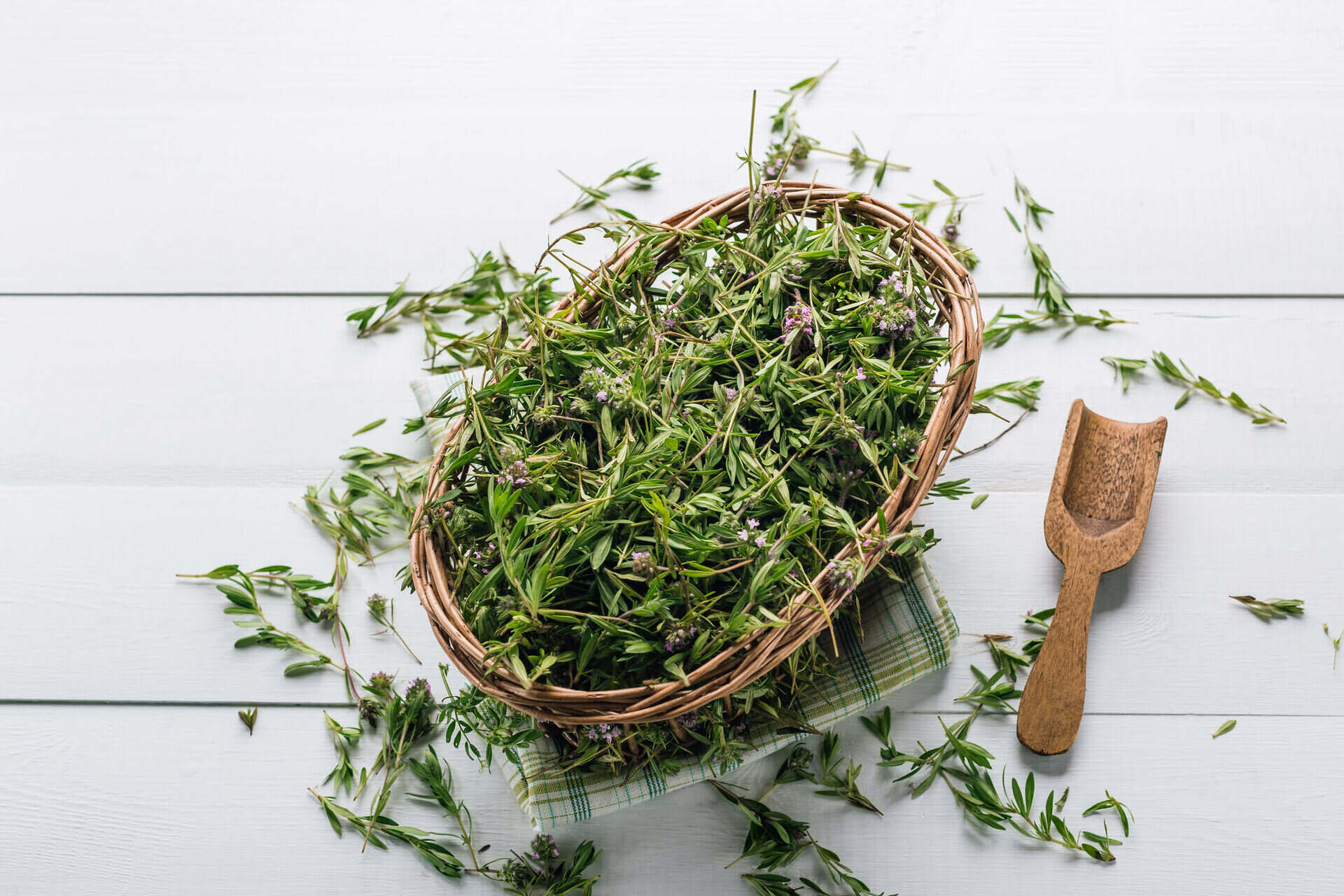

Garden Plants
What Is Thyme Herb Good For
Modified: January 5, 2024
Discover the benefits of thyme herb, known for its numerous uses in cooking, aromatherapy, and natural remedies. Explore how this versatile plant can enhance your health and well-being.
(Many of the links in this article redirect to a specific reviewed product. Your purchase of these products through affiliate links helps to generate commission for Storables.com, at no extra cost. Learn more)
Introduction
Welcome to the fascinating world of thyme herb! Thyme, known scientifically as Thymus vulgaris, is a perennial herb that belongs to the mint family. It is renowned for its aromatic leaves which are packed with flavor and a multitude of health benefits. With a history dating back centuries, thyme has been an integral part of cuisines and traditional medicine practices around the globe.
Thyme is native to the Mediterranean region and is widely grown throughout Europe, North America, and parts of Asia. It thrives in warm, sunny locations and well-draining soil. With its small, delicate leaves and clusters of tiny pink or purple flowers, thyme is not only a culinary delight but also an attractive addition to gardens and landscapes.
Its distinctive aroma and earthy taste have made thyme a staple in the culinary world. It is a versatile herb that pairs well with a wide range of ingredients and can be used fresh or dried. It adds depth and complexity to dishes such as soups, stews, sauces, marinades, and roasted meats.
Beyond its culinary uses, thyme has long been recognized for its medicinal properties. The herb is a rich source of various essential oils, vitamins, and minerals, making it a powerhouse of health benefits. From improving respiratory health to supporting digestion, boosting the immune system, and promoting healthy skin, thyme has a lot to offer.
In this article, we will explore the numerous benefits of thyme herb in more detail. We will delve into its historical significance, culinary applications, and its various medicinal properties. So, put on your gardening gloves and let’s embark on a journey to uncover the wonders of thyme!
Key Takeaways:
- Thyme herb offers a rich history, versatile culinary uses, and a wide array of medicinal properties, making it a valuable addition to any wellness routine.
- From supporting respiratory health to promoting digestion, boosting the immune system, and nourishing the skin, thyme proves to be a versatile herb with a multitude of uses.
Read more: What Is Spanish Thyme Good For
History and Origins
Thyme has a rich history that stretches back thousands of years. The herb has been revered by ancient civilizations and has been used for its culinary and medicinal properties since time immemorial.
Thyme’s origins can be traced back to the Mediterranean region, where it was highly regarded by the ancient Egyptians, Greeks, and Romans. The Egyptians used thyme in the embalming process, recognizing its ability to preserve and protect. The Greeks believed thyme to be a symbol of courage and used it in their baths and temples. The Romans, known for their love of indulgence, incorporated thyme into their cuisine and baths.
During the Middle Ages, thyme became popular in Europe for its medicinal benefits. It was often used to treat various ailments, including coughs, respiratory infections, indigestion, and even as an antiseptic for wounds. The herb’s reputation as a natural remedy continued to grow, leading to its widespread cultivation in monastery gardens.
In addition to its healing properties, thyme was also believed to have mystical and protective qualities. It was employed as an incense during religious ceremonies, and sprigs of thyme were placed beneath pillows to ward off nightmares and bring about a restful sleep.
Today, thyme is cultivated not only in its native Mediterranean region but also in many other parts of the world. It has become a beloved herb in various global cuisines and continues to be used for its medicinal benefits. Its rich history and widespread popularity are a testament to the enduring appeal and versatility of this aromatic herb.
Culinary Uses
Thyme is a culinary powerhouse, adding a burst of flavor and aroma to a wide range of dishes. Its versatility and adaptability make it a beloved herb in kitchens around the world.
The herb’s earthy and slightly minty taste pairs well with a variety of ingredients, making it suitable for both savory and sweet dishes. Thyme can be used fresh, dried, or even infused in oils and vinegars to enhance the flavor profile of meals.
One of the most popular culinary uses of thyme is in savory dishes such as soups, stews, and sauces. Its robust flavor adds depth and complexity to these dishes, enhancing the overall taste. Thyme works particularly well with meats, such as lamb, beef, and poultry, infusing them with a delightful aroma.
Roasting vegetables with a sprinkle of thyme can elevate their taste to new heights. Potatoes, carrots, mushrooms, and onions are just a few examples of vegetables that pair exceptionally well with thyme. The herb also shines when used in marinades for grilling or roasting meats, imparting a rich and flavorful profile.
Thyme can also be used in baking, adding a unique twist to both sweet and savory baked goods. It pairs well with fruits, such as lemon, orange, and berries, giving desserts a refreshing and aromatic touch. In savory baking, thyme can be mixed into bread doughs or incorporated into biscuit and pastry recipes for an herby twist.
Aside from its direct use in cooking, thyme can also be infused in oils, vinegars, and syrups to create flavorful bases for dressings, marinades, and drizzles. Thyme-infused oil is particularly delightful and can be used as a finishing touch on dishes or as a base for salad dressings.
Whether used as a standalone herb or in combination with other spices and herbs, thyme adds a layer of complexity and sophistication to any dish. Its ability to enhance the natural flavors of ingredients makes it a must-have herb in every kitchen.
Medicinal Properties
Thyme is not only a flavorful herb but also a treasure trove of medicinal properties. Its active compounds and essential oils contribute to its therapeutic benefits, making it a valuable herb in traditional and alternative medicine practices.
One of the key medicinal properties of thyme is its ability to support respiratory health. It has expectorant and antispasmodic properties, making it useful in relieving coughs, bronchitis, and other respiratory conditions. Thyme can help loosen mucus and phlegm, making it easier to expel, while its antispasmodic action can calm coughing fits and soothe irritated airways.
Thyme is also known for its digestive benefits. It can alleviate indigestion, bloating, and gas by promoting the production of digestive enzymes. The essential oils in thyme stimulate the release of gastric juices, improving digestion and reducing discomfort. Additionally, thyme has been used to help relieve menstrual cramps and stimulate appetite.
Thyme is packed with antioxidants, including thymol and rosmarinic acid, which have anti-inflammatory properties. These antioxidants help protect the body against free radicals, reducing oxidative stress and inflammation. This makes thyme beneficial for overall health and may help alleviate symptoms of chronic diseases.
The herb also has immune-boosting properties. Thyme contains vitamin C, which is essential for a healthy immune system. It also possesses antimicrobial properties, making it effective against bacteria and fungi. Thyme can be used externally as a natural disinfectant for minor cuts and wounds.
Thyme has been used topically for skin health. Its antibacterial and antifungal properties make it beneficial for treating acne, skin infections, and minor wounds. It can also help soothe skin irritations and reduce inflammation. Thyme-infused oils and creams are often used in natural skincare products.
Furthermore, thyme has been studied for its potential anti-cancer properties. Some compounds found in thyme, such as carvacrol and thymol, have shown promising effects in fighting cancer cells and inhibiting tumor growth. However, more research is needed to fully understand the extent of thyme’s anti-cancer potential.
It is important to note that while thyme has many potential health benefits, it is not a replacement for medical treatment. It should be used as a complementary approach to support overall wellness and should not be relied upon solely for serious health conditions.
With its wide range of medicinal properties, thyme proves to be a versatile herb that can contribute to both physical and emotional well-being.
Respiratory Health
Thyme has long been recognized for its beneficial effects on respiratory health. Its robust aroma and active compounds make it a go-to herb for alleviating respiratory issues and promoting clearer airways.
One of the key benefits of thyme is its expectorant properties, which help to loosen and expel mucus. When suffering from coughs, bronchitis, or congestion, thyme can help to break up the mucus, making it easier to cough up and clear the airways.
Thyme’s essential oils, including thymol and carvacrol, have antimicrobial and antiviral properties, which can help to fight off respiratory infections. These compounds can inhibit the growth of bacteria and viruses, reducing inflammation and supporting the healing process.
In addition to its expectorant and antimicrobial properties, thyme has known anti-inflammatory effects on the respiratory system. This can help to reduce inflammation and irritation in the airways, providing relief from symptoms such as coughing, wheezing, and shortness of breath.
Thyme can be consumed in various forms to support respiratory health. Drinking thyme tea can provide soothing relief for coughs and help to clear congestion. Simply steep a few sprigs of thyme in hot water for a few minutes and strain before enjoying. Thyme tea can be sweetened with honey for added taste and additional cough-soothing benefits.
Another way to benefit from thyme is by inhaling its steam. Boil a pot of water and add a handful of fresh thyme leaves or a few drops of thyme essential oil. Cover your head with a towel and lean over the pot, inhaling the steam. This can help to open up the airways and relieve congestion.
Thyme-infused oils can also be used for chest massages. Dilute a few drops of thyme essential oil in a carrier oil, such as coconut oil or olive oil, and gently massage it onto the chest. This can provide a warming and soothing sensation and help to relieve respiratory discomfort.
As with any natural remedy, it is always important to consult with a healthcare professional, especially if you have underlying respiratory conditions or are taking any medications. Thyme can be a valuable tool in promoting respiratory health, but it should be used as part of a holistic approach to overall wellness.
By incorporating thyme into your routine, you can support your respiratory system and breathe easier, enjoying the benefits of its natural properties.
Read more: What Is Thyme Tea Good For?
Digestive Health
Thyme is not only a flavorful herb but also a friend to your digestive system. Its natural compounds and essential oils have long been utilized to promote healthy digestion and alleviate digestive discomfort.
One of the key benefits of thyme for digestion is its ability to stimulate the production of digestive enzymes. Thyme contains essential oils, such as thymol, which can help to enhance the secretion of gastric juices that break down food and improve nutrient absorption. This can contribute to better digestion and prevent issues like bloating, indigestion, and gas.
The carminative properties of thyme can also provide relief from bloating and gas. Thyme helps to soothe the muscles of the digestive tract, reducing spasms and discomfort. This can promote smoother digestion and alleviate symptoms of gastrointestinal distress.
Thyme may also be beneficial for relieving menstrual cramps. The herb has natural antispasmodic properties that can help to relax the muscles of the uterus, alleviating the intensity and duration of menstrual cramps.
There are several ways to incorporate thyme into your diet to support digestive health. Adding freshly chopped thyme leaves to your meals can infuse dishes with its aromatic flavor and digestive benefits. Thyme pairs well with a wide range of ingredients and can be used in savory dishes like soups, stews, and roasted vegetables, as well as in dressings and marinades.
Furthermore, thyme tea can be brewed by steeping a few sprigs of fresh thyme in hot water. This herbal tea can be sipped after meals to aid digestion and soothe the stomach. Adding a touch of honey can provide additional benefits, as honey is known for its soothing properties on the digestive system.
Thyme-infused oils can also be used externally to support digestion. A gentle massage on the abdomen with thyme-infused oil can help to relieve discomfort and promote healthy digestion.
As with any herbal remedy, it is important to use thyme in moderation and be aware of any potential allergies or sensitivities. It is always a good idea to consult with a healthcare professional if you have any pre-existing digestive conditions or are taking medications.
By incorporating thyme into your culinary repertoire and exploring its digestive benefits, you can support a healthy and happy digestive system.
Thyme herb is good for relieving coughs and sore throats due to its natural antiseptic and expectorant properties. You can make a soothing thyme tea by steeping fresh or dried thyme in hot water for 10 minutes.
Immune System Support
The immune system is our body’s defense mechanism against pathogens and harmful invaders. Thyme is a herb that has been used for centuries to support and strengthen the immune system naturally.
Thyme is packed with essential nutrients, including vitamin C, which is known for its immune-boosting properties. Vitamin C plays a crucial role in supporting the production of white blood cells, which are key components of our immune system. By consuming thyme, you can provide your body with a natural source of vitamin C to help fortify your immune defenses.
Thyme also contains antioxidants, such as thymol and rosmarinic acid. These antioxidants help protect our cells from damage caused by harmful free radicals, reducing oxidative stress and inflammation in the body. By reducing inflammation, thyme can support immune function and promote overall health.
Furthermore, the essential oils found in thyme have antimicrobial properties. Thymol, in particular, has been studied for its ability to combat various strains of bacteria and fungi. These antimicrobial properties make thyme a valuable herb in supporting the immune system’s fight against infections.
Thyme can be incorporated into your diet in various ways to support immune system function. Fresh thyme leaves can be added to soups, stews, and sauces, not only adding flavor but also providing immune-boosting benefits. Thyme can also be infused in hot water to create a flavorful tea that can be enjoyed throughout the day.
Thyme-infused oils can also be used topically for additional immune support. These oils can be used for massage or applied as a natural chest rub to help soothe respiratory congestion and support the body’s defense against respiratory infections.
It is important to note that while thyme can help support the immune system, it is not a magical cure-all. A healthy lifestyle that includes a balanced diet, regular exercise, adequate sleep, and proper hygiene practices are all essential for maintaining a strong and resilient immune system.
By incorporating thyme into your daily routine, you can give your immune system an extra boost and help protect your body against common illnesses.
Skin Health
Thyme not only excels in the kitchen and medicine cabinet but also proves to be a valuable ally for skin health. Its natural compounds and essential oils offer a range of benefits that can promote a healthy and radiant complexion.
Thyme’s antibacterial and antifungal properties make it a great addition to your skincare routine. The herb can help combat acne-causing bacteria, preventing breakouts and promoting clearer skin. Thyme can also be used to address fungal infections of the skin, such as athlete’s foot or ringworm.
In addition to its antimicrobial properties, thyme possesses anti-inflammatory effects. This means it can help soothe irritated skin, reduce redness, and calm inflammatory conditions like eczema and psoriasis. The application of thyme-infused products may help alleviate itching and promote healing.
Thyme’s antioxidant content, including compounds like thymol and rosmarinic acid, contributes to its skin-protective benefits. Antioxidants help neutralize harmful free radicals, protecting the skin from oxidative stress and premature aging. Regular use of thyme-infused products may help reduce the appearance of fine lines, wrinkles, and age spots.
Thyme can be used topically in various forms for skin health. Thyme-infused oils can be gently massaged onto the skin to help moisturize, nourish, and rejuvenate. Thyme essential oil, however, should be diluted in a carrier oil before use to prevent skin irritation.
Thyme-infused water or tea can also be used as a refreshing facial toner. Simply brew a strong thyme tea, let it cool, and transfer it into a small spray bottle. Spritz the toner onto cleansed skin to tighten pores, balance oil production, and refresh the complexion.
As with any skincare product, it is essential to do a patch test before using thyme-infused products to ensure that you are not allergic or sensitive to it. If you have any underlying skin conditions or are taking medications, it is advisable to consult with a dermatologist or healthcare professional before incorporating thyme into your skincare routine.
By harnessing the skin-supporting properties of thyme, you can enhance your natural beauty and promote a healthy and glowing complexion.
Other Health Benefits
Thyme is a versatile herb that offers a wide array of health benefits beyond its culinary and medicinal properties. Let’s explore some additional ways in which thyme can contribute to your overall well-being.
1. Antioxidant Powerhouse: Thyme is packed with antioxidants, which help protect the body from oxidative stress and combat free radicals. These antioxidants may have anti-aging effects, supporting healthy cells and tissues throughout the body.
2. Bone Health: Thyme contains essential minerals like calcium and iron, which are crucial for maintaining strong bones and preventing conditions like osteoporosis. Incorporating thyme into your diet can help support bone health and prevent deficiencies.
3. Cognitive Function: Thyme has been studied for its potential cognitive benefits. It is believed to have memory-enhancing properties and can help improve focus and concentration. The antioxidants in thyme may also protect against age-related cognitive decline.
4. Heart Health: Thyme contains compounds that may promote cardiovascular health. Its anti-inflammatory and antioxidant properties can help reduce inflammation in blood vessels, improve blood flow, and lower the risk of heart disease.
5. Mood Booster: The pleasant aroma of thyme has been known to have mood-elevating effects. Inhaling the scent of thyme essential oil or enjoying a cup of thyme tea can have a calming and uplifting effect on the mind, reducing stress and anxiety.
6. Oral Health: Thyme has antimicrobial properties that can help combat bad breath and fight against oral bacteria that cause tooth decay and gum disease. Thyme-infused mouthwashes or gargles can help promote oral hygiene and freshen breath.
7. Weight Management: Thyme is low in calories and rich in flavor, making it a great addition to a weight management diet. Its aromatic compounds can enhance the taste of dishes without the need for excessive added fats or sugars.
8. Diuretic Benefits: Thyme has mild diuretic properties, meaning it can help stimulate water elimination from the body, supporting kidney function and reducing water retention.
While thyme can provide these health benefits, it is essential to remember that it is not a substitute for medical treatment. It is always advisable to consult with a healthcare professional for individualized advice and treatment plans.
With its array of health-promoting properties, thyme proves to be more than just a culinary herb – it is a natural ally in supporting overall health and well-being.
Read more: What Is A Good Soil Mix For Herbs
Precautions and Side Effects
While thyme is generally safe for consumption and topical use, it is important to be aware of certain precautions and potential side effects.
Allergies: Some individuals may be allergic or hypersensitive to thyme or other members of the mint family. If you have a known allergy to mint, basil, or oregano, it is advisable to exercise caution when using thyme. It is recommended to perform a patch test before using thyme-infused products topically.
Pregnancy and Breastfeeding: Thyme is generally considered safe to consume in moderation during pregnancy and breastfeeding when used as a culinary herb. However, it is advised to consult with a healthcare professional before using thyme supplements or higher concentrations of thyme essential oil during these periods.
Drug Interactions: Thyme may interact with certain medications, such as blood thinners or anticoagulants. If you are taking any medications, it is important to consult with your healthcare provider before incorporating thyme into your routine to avoid any potential interactions.
Topical Use: Thyme essential oil should always be diluted in a carrier oil or other suitable base before applying it to the skin. Direct application of undiluted thyme essential oil can cause skin irritation, redness, or burning sensations. It is important to follow proper dilution guidelines and perform a patch test before using thyme topically.
Stomach Sensitivity: While thyme is generally well-tolerated, some individuals may experience gastrointestinal discomfort, such as upset stomach or heartburn, when consuming large amounts. It is recommended to consume thyme in moderation and listen to your body’s response.
It is crucial to source thyme from reputable suppliers to ensure the herb’s quality and avoid any potential contamination or adulteration. Organic and sustainably sourced thyme is always a good choice.
If you experience any adverse effects or have concerns about using thyme, it is best to discontinue use and consult with a healthcare professional for personalized guidance.
Ultimately, while thyme offers numerous health benefits, it is important to use it responsibly and be mindful of individual circumstances and potential interactions.
Conclusion
Thyme herb, with its enticing aroma and robust flavor, has captivated culinary enthusiasts for centuries. Beyond its culinary prowess, thyme offers an impressive range of medicinal properties and health benefits that make it a valuable addition to any wellness routine.
From supporting respiratory health and promoting digestion to boosting the immune system and nourishing the skin, thyme proves to be a versatile herb with a multitude of uses. Its rich history, dating back to ancient civilizations, speaks to the enduring appeal and remarkable properties of this herb.
Whether used in cooking, tea, infused oils, or skincare formulations, thyme brings a touch of nature’s goodness to our lives. It not only adds flavor and depth to our favorite dishes but also contributes to our overall well-being.
As with any herb or natural remedy, it is important to exercise caution and be mindful of individual sensitivities, allergies, or potential interactions with medications. Seeking guidance from healthcare professionals is always advisable, especially for pregnant or breastfeeding individuals, those with specific health conditions, or those taking medications.
So, the next time you reach for thyme in your kitchen or garden, appreciate its rich history, its versatility, and the profound impact it can have on your health. Whether it’s captivating your taste buds or soothing your respiratory system, thyme is a herb that truly enhances the quality of our lives.
Embrace the wonders of thyme and experience the transformative power of this remarkable herb in your journey towards a healthier and more flavorful life.
Frequently Asked Questions about What Is Thyme Herb Good For
Was this page helpful?
At Storables.com, we guarantee accurate and reliable information. Our content, validated by Expert Board Contributors, is crafted following stringent Editorial Policies. We're committed to providing you with well-researched, expert-backed insights for all your informational needs.
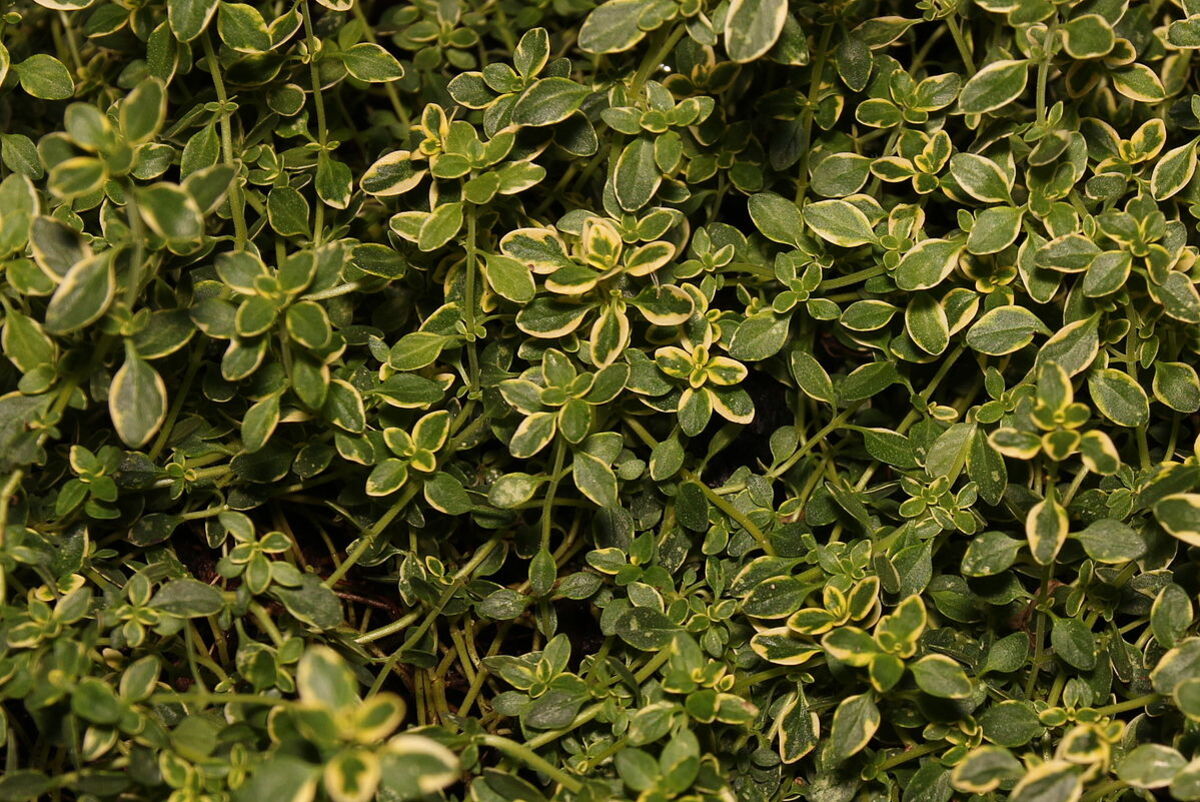
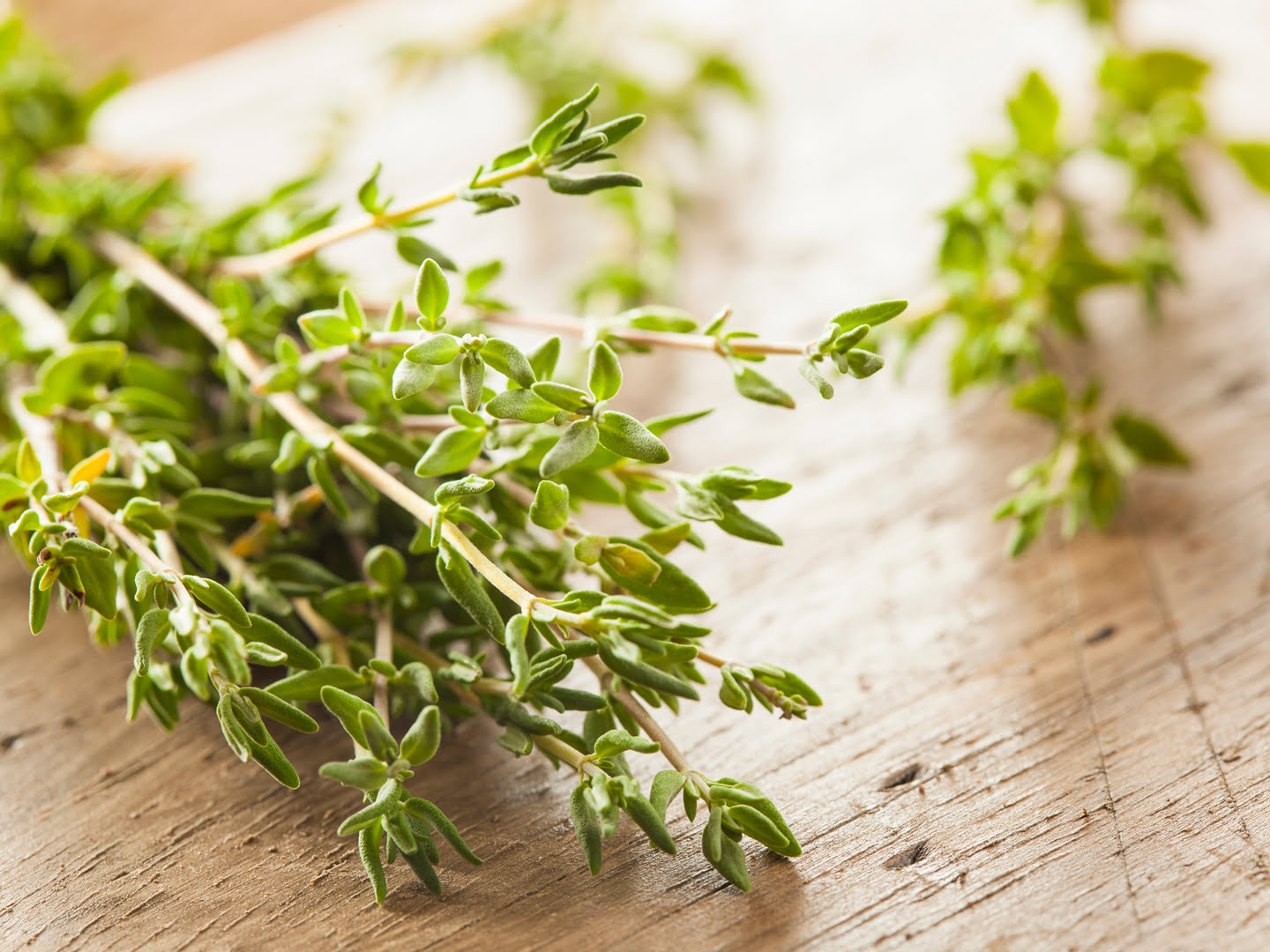
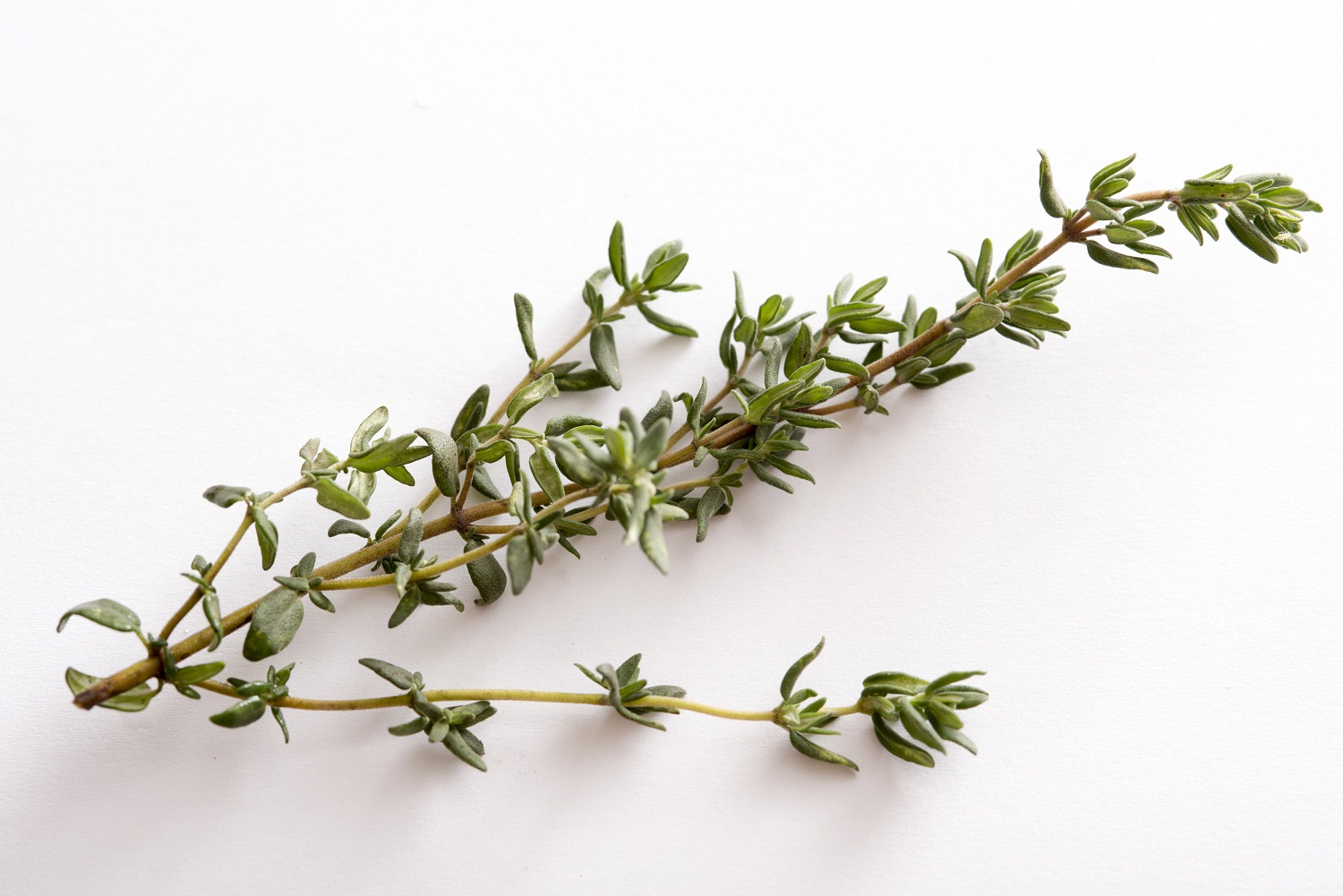


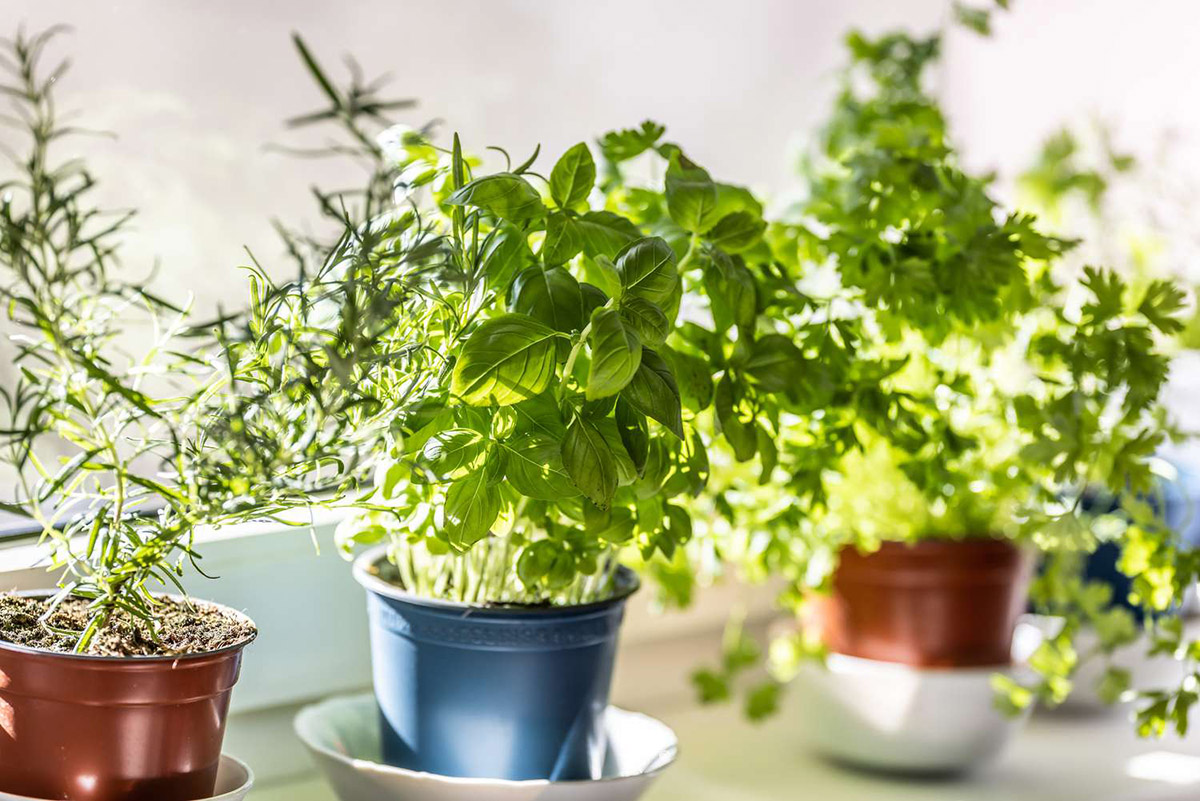
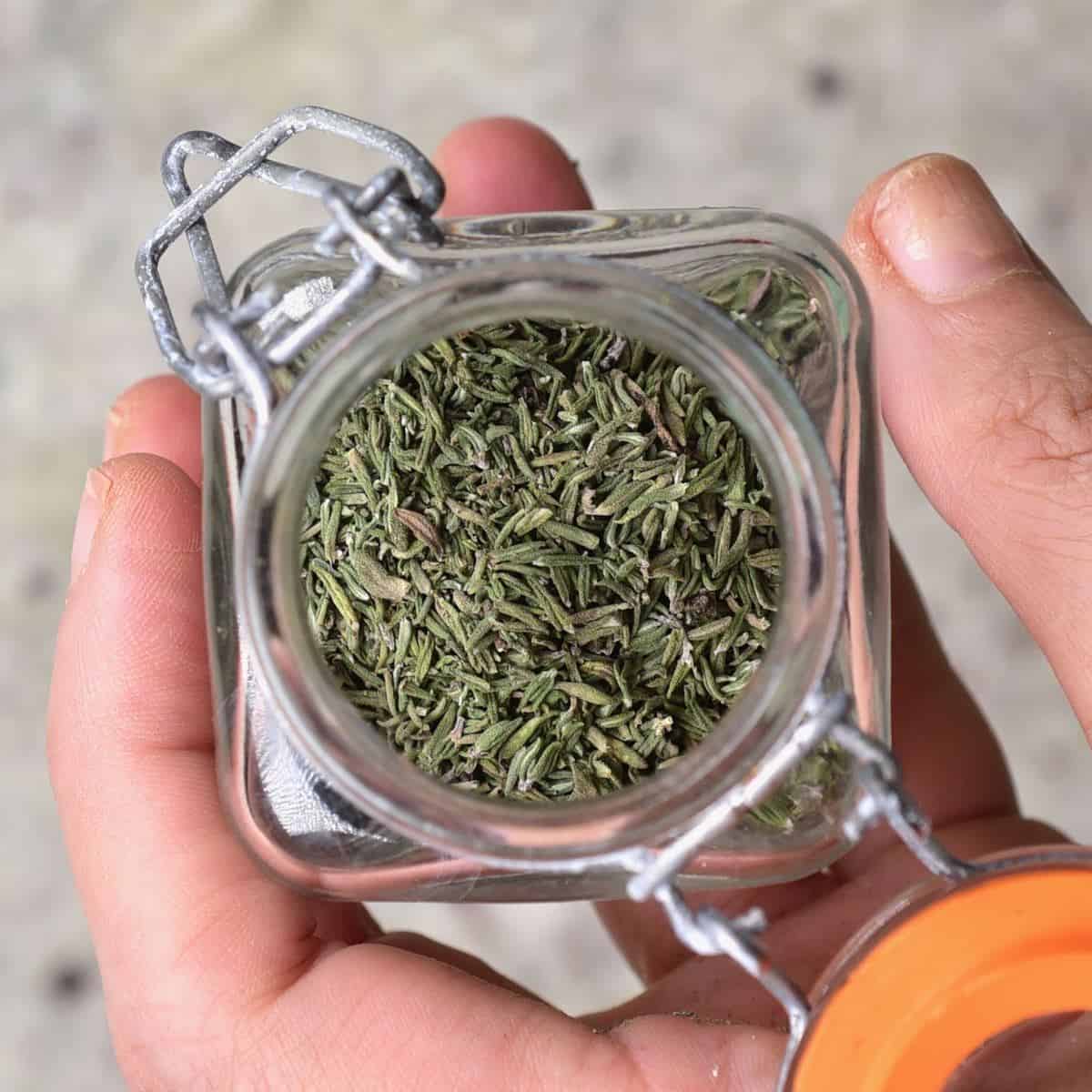

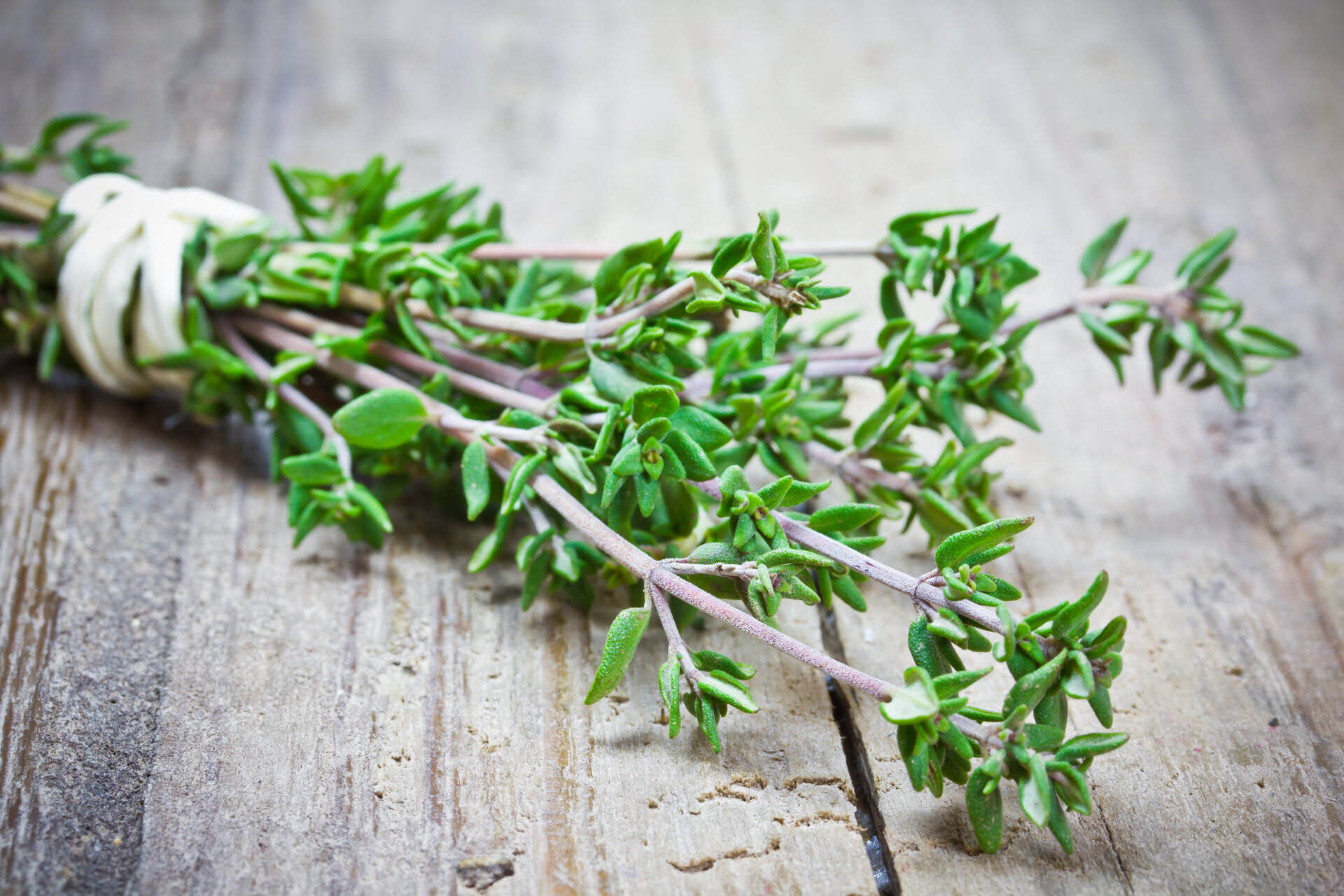
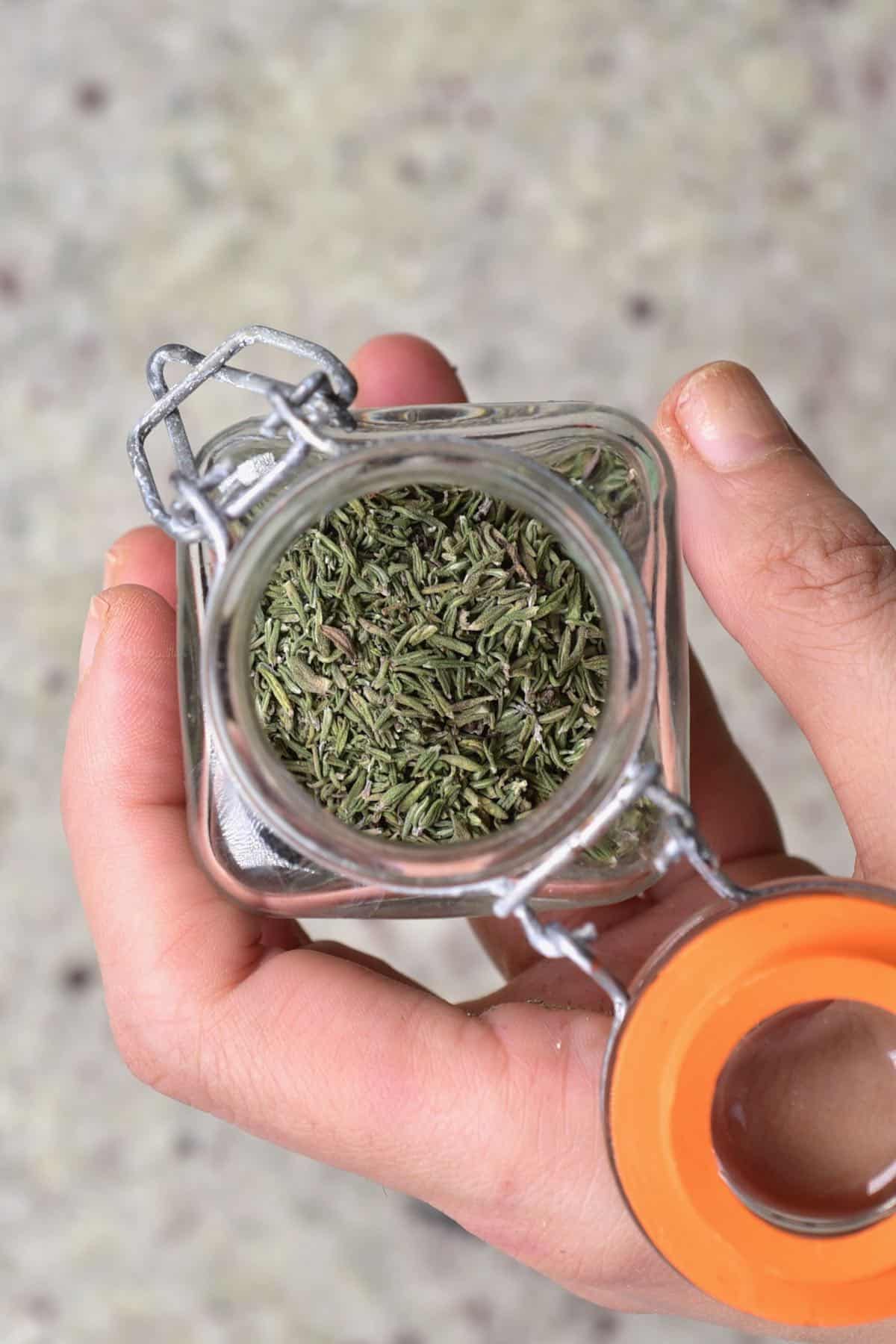
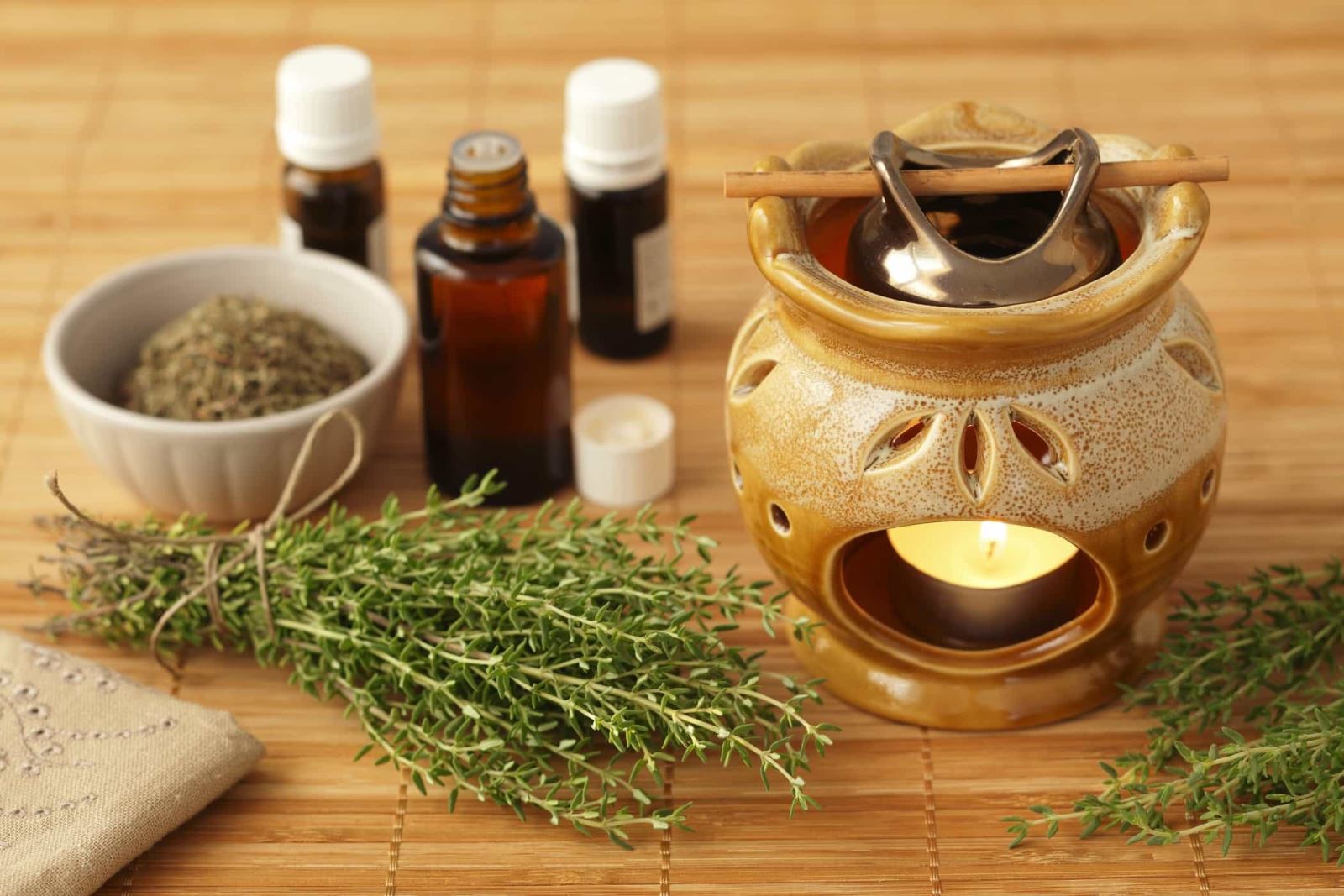
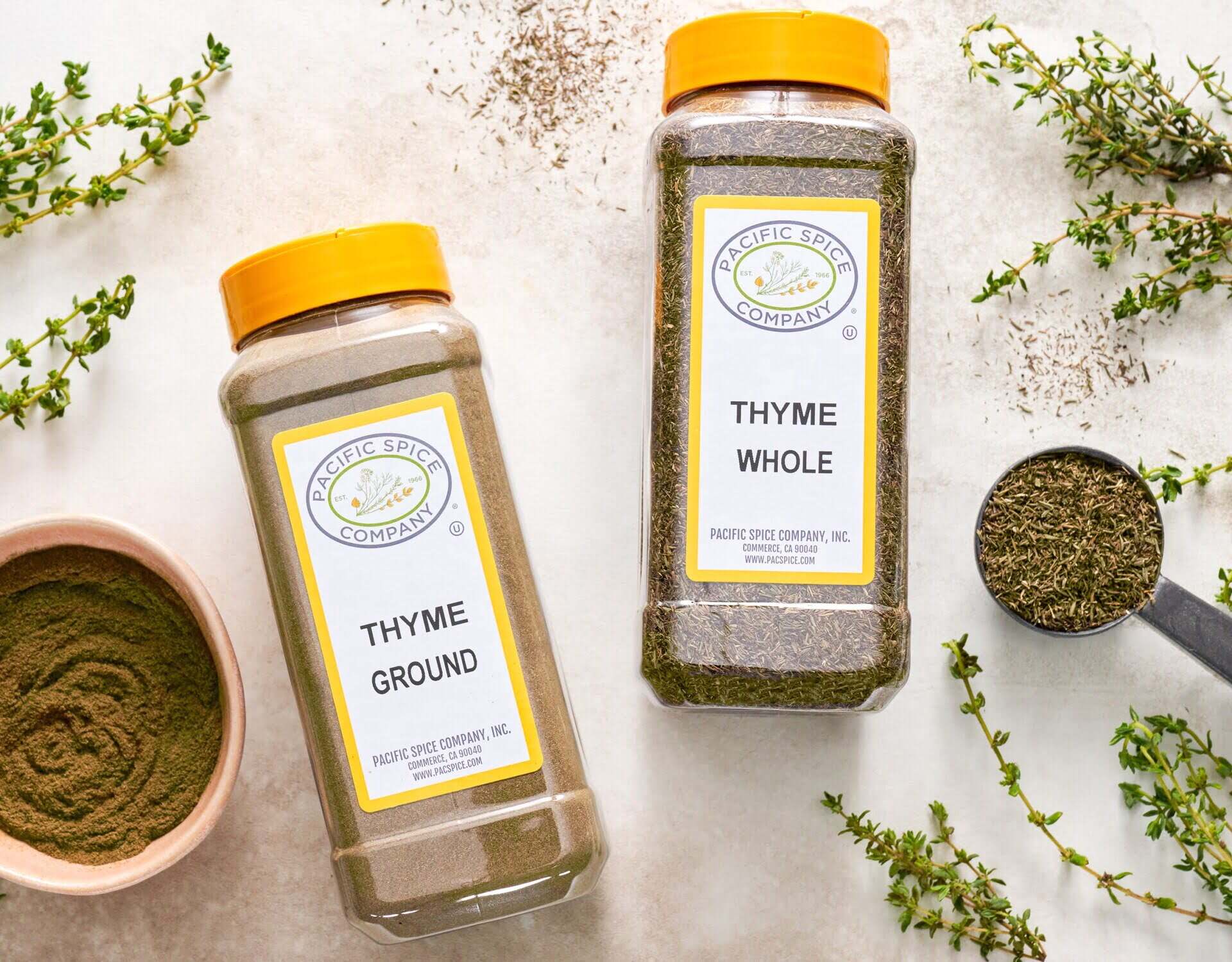


0 thoughts on “What Is Thyme Herb Good For”